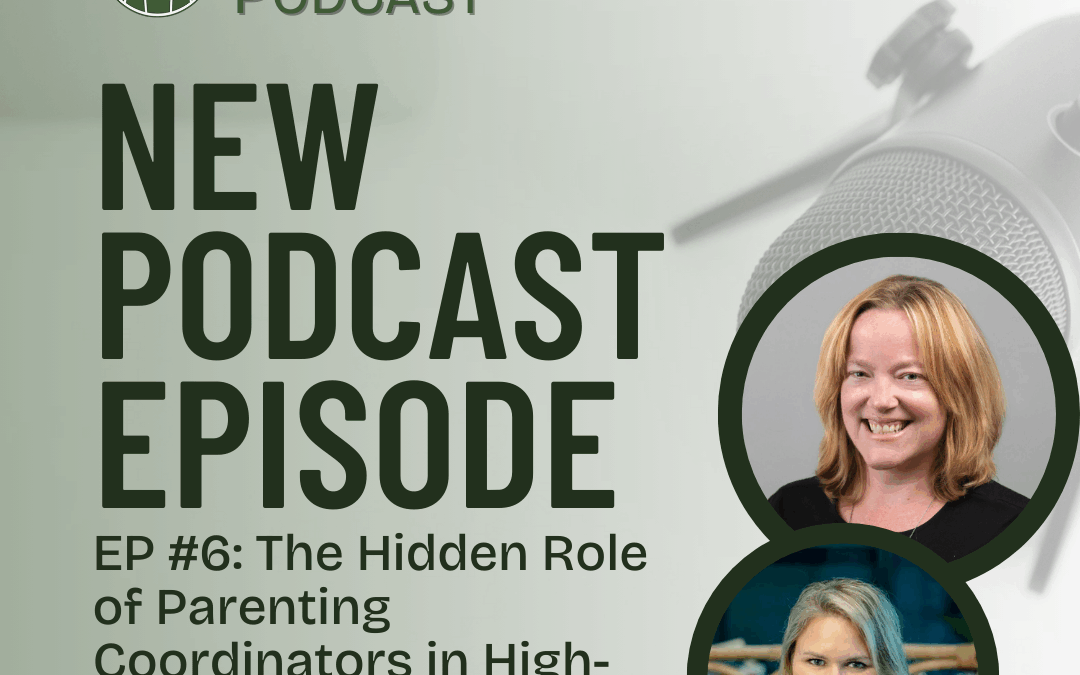Podcast Episode #6: The Hidden Role of Parenting Coordinators in High-Conflict Divorces with Guest Caroline Taylor, LPC
In Episode 6 of the Herlihy Family Law Podcast, Attorney Alison Herlihy dives into the essential role of parenting coordinators in divorce and custody cases, welcoming Caroline Taylor, an experienced parenting coordinator, as her guest. With a background in child development and counseling, Caroline brings years of expertise in helping families navigate conflict and build healthier co-parenting dynamics. This episode sheds light on how parenting coordinators support families, the unique challenges they address, and the benefits they provide.
What Is a Parenting Coordinator?
A parenting coordinator is a neutral third party who works with families in high-conflict divorce or custody cases to improve communication, resolve disagreements, and create practical parenting solutions. Unlike mediators, who focus on facilitating agreements during a single session, parenting coordinators take a more ongoing role, addressing conflicts as they arise and working toward long-term solutions. Parenting coordinators also differ from guardians ad litem, who advocate specifically for the child’s best interests in court. Instead, parenting coordinators aim to balance the needs of the entire family system.
In Alabama, there is no specific statute defining the role of parenting coordinators, meaning their responsibilities can vary depending on the court order or agreement. Generally, they assist with decisions about parenting duties, such as extracurricular activities, schedules, and communication strategies. In cases of impasse, they may even make recommendations to the court based on their observations.
When Are Parenting Coordinators Used?
Parenting coordinators are typically brought into cases involving high conflict, where parents struggle to reach agreements on their own. These cases often involve repeated court modifications, substance abuse concerns, or mental health challenges. However, parenting coordinators can also play a valuable role in collaborative divorces, where parents aim to create a cooperative parenting plan without litigation. By facilitating communication and offering structured guidance, parenting coordinators help parents avoid frequent court appearances and focus on the well-being of their children.
Key Issues Parenting Coordinators Address
One of the primary areas parenting coordinators focus on is improving communication between parents. Divorce often stems from a breakdown in communication, and rebuilding this foundation is crucial for effective co-parenting. Parenting coordinators work to establish a business-like, emotion-free approach to communication, helping parents shift their focus from interpersonal conflicts to problem-solving for the benefit of their children.
Other issues that parenting coordinators address include:
- Navigating substance abuse or mental health challenges within the family.
- Managing supervised visitation arrangements and monitoring progress.
- Collaborating with therapists, attorneys, and other professionals to create a cohesive plan for the family.
- Offering solutions for day-to-day parenting conflicts, such as scheduling or decision-making about extracurricular activities.
By fostering a solutions-oriented approach, parenting coordinators help families create a new structure and set of rules to follow after divorce or custody modifications.
The Benefits of Parenting Coordination
Parenting coordinators offer numerous benefits for families navigating tough situations. They provide a faster, more efficient alternative to court hearings for resolving conflicts, which can be especially important in cases involving complex family dynamics. Additionally, they help establish a healthier co-parenting framework, reducing the emotional toll on children and creating a stable environment for them to thrive.
Another key benefit is the objectivity that parenting coordinators bring to the process. While their role may not always feel “fair” to both parents, it is always focused on what is best for the family as a whole, particularly the children. This objectivity can also serve as valuable evidence for the court, should the need arise.
Preparing to Work with a Parenting Coordinator
To make the most of parenting coordination, parents should approach the process with an open mind and a willingness to compromise. It’s important to recognize that parenting coordination is not therapy—it’s a practical, problem-solving process. Parents should come prepared with clear ideas about their positions but also be ready to collaborate for the benefit of their family.
When selecting a parenting coordinator, it’s essential to vet their education, training, and experience. In Alabama, where no specific statute governs the role, parents should ensure their chosen coordinator adheres to professional guidelines and has the necessary qualifications.
Final Thoughts
Parenting coordinators play a vital role in helping families navigate high-conflict custody and divorce cases. By fostering communication, offering practical solutions, and keeping the focus on the children, they provide families with the tools to move forward in a healthier, more cooperative way.
If you’re facing family law challenges and want to learn more about parenting coordination, tune in to the Herlihy Family Law Podcast. You can also contact Herlihy Family Law for expert legal guidance or reach out to Caroline Taylor for parenting coordination services. Visit herlihyfamilylaw.com or call 251-432-7909 to take the first step toward a better future for your family.

